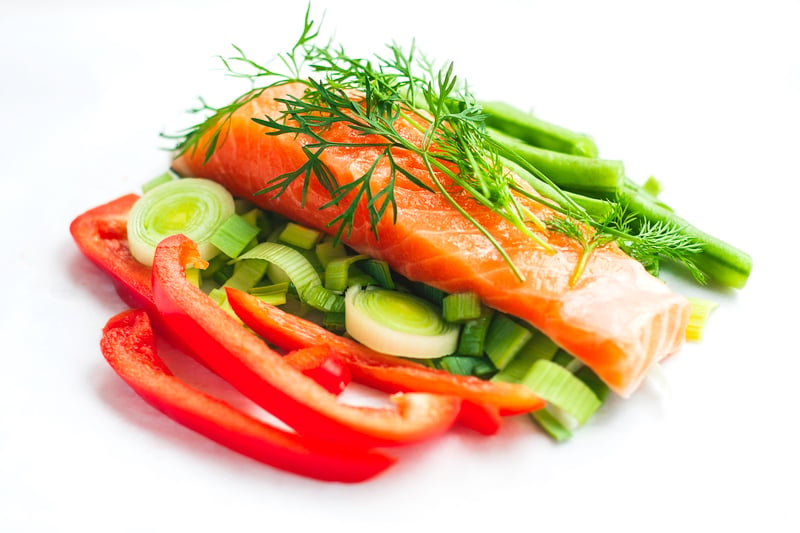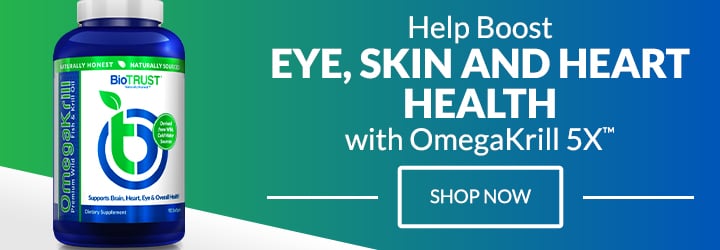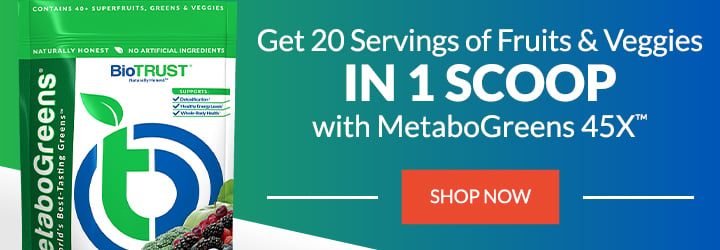Want Glowing Skin? Eat These 7 Best Foods for Skin Health

While many people are conscious of what they put on their skin, fewer folks realize the significant effect of what they put in their bodies on their largest organ. There are countless potions, elixirs, and serums—with all kinds of good (and sometimes bad) ingredients—to help our skin age gracefully, avoid redness and irritation, and prevent breakouts. Yet beauty isn’t just skin deep, and beauty from within isn’t just about your wonderful personality. It’s also about eating some of the best foods for skin heath.
Yes, what you eat can help make your skin healthier and younger looking. As older cells are shed and replaced, key nutrients support growth and rejuvenation, helping your skin stay soft, elastic, and free of blemishes as well as providing protection against sun damage.
What should you eat to support your most visible organ? Here are 7 nutrients—and more importantly, the foods you need to include on the menu—to improve your skin health!
The 7 Best Foods for Skin Health
1. Omega-3 Fatty Acids
Omega-3 fatty acids are synonymous with healthy skin, as they are known to help the skin stay supple and moisturized. What’s more, they support a healthy inflammatory response, and along those lines, they may help reduce redness and acne. 1 With a rich dose of the essential omega-3 fatty acids, some of the best foods for skin health include fatty fish like salmon, sardines, herring, mackerel, rainbow trout, oysters, anchovies, mussels, albacore tuna, and pollock.
Plus, research has shown that omega-3 fats may even help protect the skin from potentially harmful UV ray exposure, and they have been shown to help prevent sunburn and photoaging. One study, for example, showed that consuming 4 grams of omega-3s daily reduced sunburn sensitivity and the threshold for causing sunburn. 2
Fatty fish and seafood are also rich in other powerful, skin-protecting nutrients and antioxidants, like carotenoids (including astaxanthin), vitamin D, retinol (vitamin A), and CoQ10, for example.
2. Carotenoids
Carotenoids are vitamin A derivatives that are all highly effective antioxidants with powerful “photoprotective” properties, meaning they help protect against UV exposure. Examples of carotenoids, which are natural colorants found in a variety of foods, include beta-carotene, astaxanthin, lycopene, and retinol, which help fortify the skin from within.
Two of the best-researched carotenoids 3 for their potential UV-protection properties are beta-carotene (found in high quantities in sweet potatoes, carrots, dark leafy greens, butternut squash, lettuce, red bell peppers, and broccoli) and lycopene (found in cooked tomatoes, watermelon, grapefruit, sweet red peppers, asparagus, red cabbage, and mangos). 4
Yet even the colorless carotenoids like phytoene and phytofluene (also found in tomatoes, carrots, apricots, oranges, watermelons, peppers, etc.) have been shown to among the best foods for skin health. 5
Carotenoids also have powerful antioxidant qualities, which can help inhibit lipid oxidation, decrease DNA damage, and reduce inflammation to help prevent cell damage, premature skin aging, and even skin cancer. 6 In one study, for example, tomato paste rich in lycopene helped protect against skin photodamage. 7 Other research on beta-carotene found that taking 30 mg daily for 90 days helped decrease facial wrinkling, improve skin elasticity, and increase levels of collagen. 8
3. Phytonutrients
Yet another reason to eat your vegetables is because of their high content of phytonutrients, including polyphenols, flavonoids, and phenolics, which are found in cocoa (i.e., dark chocolate), coffee, green tea, as well as numerous fruits and vegetables. These phytonutrients have powerful antioxidant properties, and they can help protect against potentially harmful UV ray exposure. They also support a healthy inflammatory response and help repair DNA. 9, 10, 11, 12
4. Collagen
If you’re looking for vibrant, glowing skin, one nutrient you don’t want to forget is collagen. Collagen makes up about 70% of the protein in skin, and it’s been shown to increase skin elasticity, so you appear younger and healthier. It truly is one of the best foods for skin health.
Yet as we age, collagen production declines. To make matters worse, collagen levels can be further depleted by unhealthy exposure to UV rays, pollution, stress, poor diet, smoking, and other factors. And sadly, collagen breakdown leads to looser, more saggy skin with more fine lines and wrinkles. It also leads to dryness.
Fortunately, you can replenish and restore collagen levels—and healthy skin—by adding more collagen to your diet. You can get collagen protein from bone broth and by eating the skin, organs, and connective tissues from land and sea creatures.
But hands down, the best way to add more collagen to your diet is by supplementing with collagen peptides. Research has shown that supplementing with collagen peptides can improve the appearance of skin, increase in elastin (another protein found in skin), and significantly reduce fine lines and wrinkles within just 8 weeks. 13
5 & 6. Vitamins C & E
Many people are aware of the benefits of vitamin C for their skin health—and numerous other benefits. And when it’s combined with vitamin E, vitamin C appears to be even more effective, as these two powerhouse antioxidants work together to protect against UV damage and photoaging.
One study, for example, found that when 2 grams per day of vitamin E were combined with 3 grams per day of vitamin C, they worked together to protect the skin from sunburn. 14 Another study showed similar effects for reducing the risk of sun-caused skin damage. 15
What’s more, both vitamins C and E are important to support healthy levels of collagen. For example, vitamin C plays an essential role in collagen production, and vitamin E protects collagen, helping prevent loss of elasticity and stiffness. Citrus fruits (e.g., pomelo, oranges, grapefruit, clementines, lemons, limes), cruciferous veggies, peppers, and tomatoes are great sources of vitamin C, and you can find vitamin E in dark leafy greens, sunflower seeds, almonds, asparagus, and broccoli.
7. Water
Want your skin to look better? Ensure you’re drinking enough water. The body is made up of between 55 and 75% water, and the skin itself is ~30% water. Healthy-looking skin starts with hydrating yourself from the inside. That water contributes to the skin’s “plumpness, elasticity, and resiliency.” 16 And drinking water, especially if you haven’t been consuming enough, has been shown to improve skin thickness and density.
Best Foods for Skin Health — A Recap
Many of these best foods for skin health work together, so it’s not just about consuming one nutrient—or even a single food for that matter—over another. A diet that includes plenty of nutrient-rich whole foods, including vegetables, fruits, and sustainable land and sea creatures, is the foundation of a healthy skin regimen. Of course, while the foods you eat are important, what you don’t eat also matters. Along those lines, limit (or altogether avoid) your intake of added sugar, refined vegetable/seed oils, refined grains, and alcohol, which can negatively affect skin health and make you look older.




 7 Signs Your Body is Seriously Low on Collagen (not just wrinkles)
7 Signs Your Body is Seriously Low on Collagen (not just wrinkles) Health Expert: "Turmeric Doesn't Work (unless...)"
Health Expert: "Turmeric Doesn't Work (unless...)" 3 Warning Signs Your Probiotic Supplement is a Total Waste
3 Warning Signs Your Probiotic Supplement is a Total Waste

